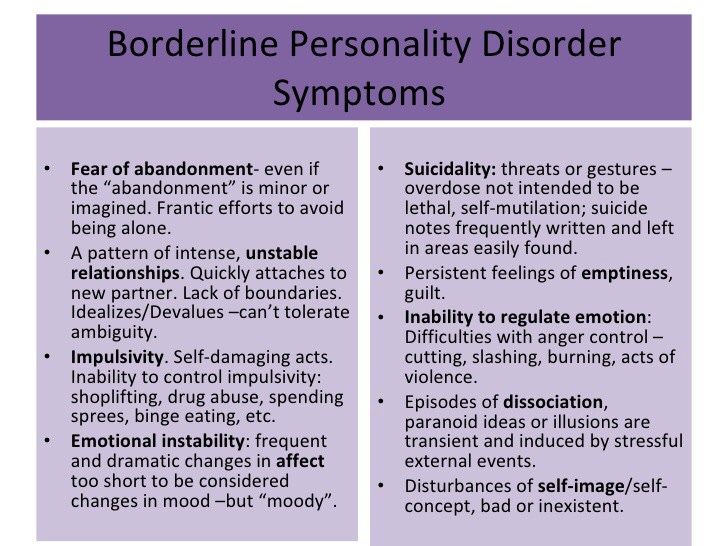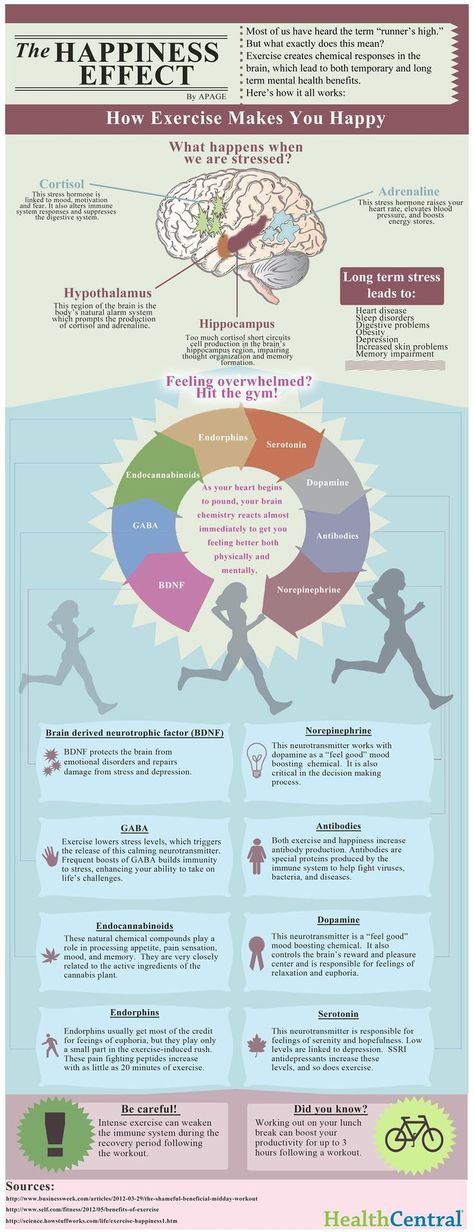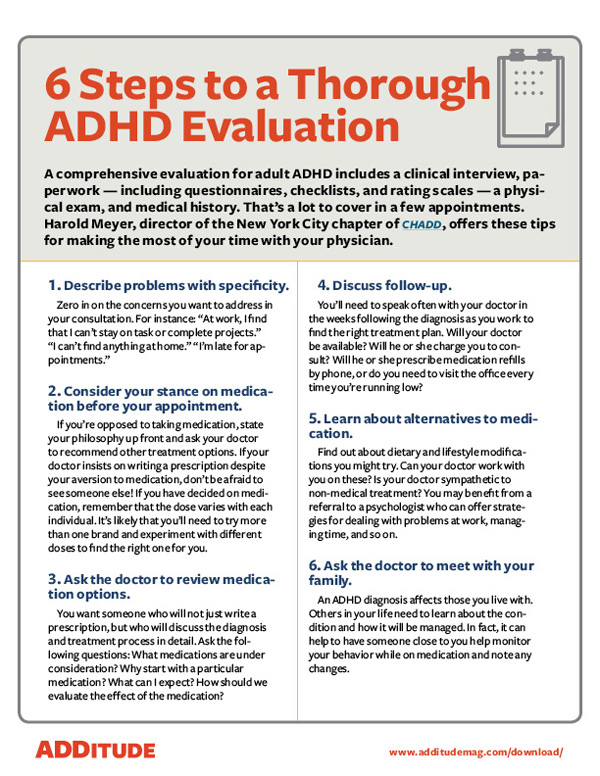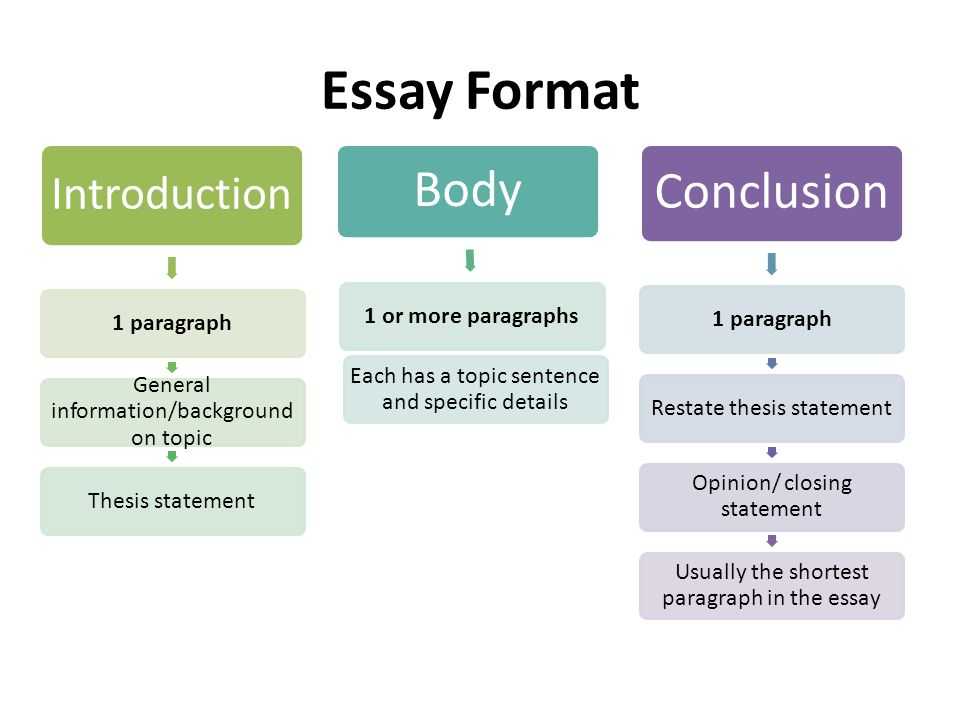The narcissistic and borderline disorders
Borderline and Narcissistic Personality Disorder
Based on overlapping symptoms, Borderline Personality Disorder (BPD) and Narcissistic Personality Disorder (NPD) are often mistaken for one another. The two personality disorders even have a rate of co-occurrence of about 25 percent, according to the National Alliance on Mental Illness (NAMI).
Though the two personality disorders share some common symptoms, they are distinct disorders with their own set of diagnostic criteria. For example, both BPD and NPD deal with conflict in a way that is unhealthy to themselves and those around them. It’s the expression of the anger that results from the conflict that is different.
In her article “Blame-Storms and Rage Attacks,” Randi Kreger, co-author of
Walking on Eggshells, points out the difference in how those with BPD and NPD express anger. While those with Borderline Personality Disorder may fly into a rage and push people away, they will often calm down, feel shame for their reaction, and promise never to do it again.
“Unless they’re in treatment, the underlying issues don’t go away. Some conventional [borderlines] do not get angry at all, but hold it in or express it inwardly through self-harm,” says Kreger.
“The anger of narcissists, on the other hand, can be more demeaning,” she continues. “Their criticism evolves from their conviction that others don’t meet their lofty standards — or worse, aren’t letting them get their own way.”
Symptoms of Narcissistic Personality Disorder
Just like Borderline Personality Disorder, the Diagnostic and Statistical Manual of Mental Disorders (DSM) lists nine symptoms of Narcissistic Personality Disorder. If you exhibit five of these nine symptoms in a persistent manner, you meet the criteria for diagnosis of NPD:
- An exaggerated sense of one’s own abilities and achievements
- A constant need for attention, affirmation, and praise
- A belief that you are unique or “special,” and should only associate with other people of the same status
- Persistent fantasies about attaining success and power
- Exploiting other people for personal gain
- A sense of entitlement and expectation of special treatment
- A preoccupation with power or success
- Feeling envious of others, or believing that others are envious of you
- A lack of empathy for others
NPD and BPD: Similarities and Differences
Narcissistic Personality Disorder can exist on its own, but can also be found co-occurring with Borderline Personality Disorder. Mix and match five out of nine symptoms of NPD with five out of the nine symptoms of BPD, and you get someone who will likely be described at least as “difficult” or “high maintenance,” and who certainly is having a tough time in day-to-day life.
Mix and match five out of nine symptoms of NPD with five out of the nine symptoms of BPD, and you get someone who will likely be described at least as “difficult” or “high maintenance,” and who certainly is having a tough time in day-to-day life.
Both people with BPD and with NPD deal with an intense fear of abandonment. Enhancing that fear of abandonment is the fact that sustaining relationships with others in the face of these symptoms is a challenge to say the least. “Intense and stormy relationships” is, in fact, one of the characterizing symptoms of BPD.
In an article for Psychology Today, Susan Heitler, PhD, author and Harvard graduate, describes emotionally healthy functioning in the absence of BPD or NPD: “Emotionally healthy functioning is characterized by ability to hear your own concerns, thoughts, and feelings and also to be responsive to others’ concerns.”
In the world of the narcissist, that second part just isn’t present. Narcissists are unable to step outside of themselves to imagine any weight behind someone else’s opinion. This renders someone with NPD socially and emotionally ineffective, and affects their ability to maintain relationships.
This renders someone with NPD socially and emotionally ineffective, and affects their ability to maintain relationships.
On the other hand, those with BPD are often over-responsive to other’s concerns, especially when they are in the “idealization” phase of a relationship. But anger and resentment from putting the other’s concerns first inevitably cycles around, causing resentment, at which point the relationship will enter the “devaluation” phase.
The key to a healthy relationship, says Heitler, is finding the point where both parties’ concerns are taken into consideration. “When differences arise, socially effective folks are pros at finding win-win solutions because they routinely hear and take into consideration both their own and other people’s concerns,” she said.
Personality Disorder Treatment
A personality disorder treatment center can help you with an accurate diagnosis so that you can design an effective treatment plan to overcome the symptoms of both Borderline Personality Disorder and Narcissistic Personality Disorder and have healthier and more fulfilling relationships.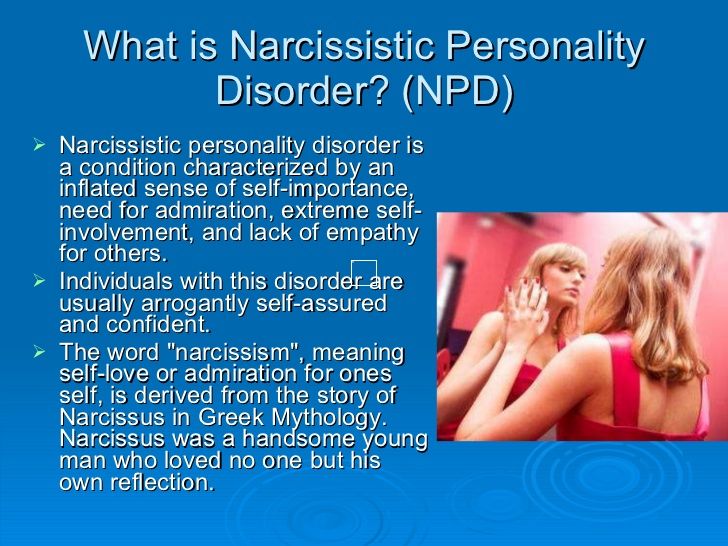
Related Articles:
- BPD vs. Bipolar Disorder: What Is the Difference?
Borderline and Narcissistic Personality: Differences and Similarities
guest post by Randi Kreger
In this post, I am talking about the majority of people with borderline personality disorder (BPD) who are not in treatment and do not self-identify as having BPD. Nearly 40% of those with borderline personality disorder also have narcissistic personality disorder (NPD). 1 A person can have one disorder and traits of the other as well. It helps to understand their similarities and differences.
Source: By FGC/Shutterstock
Differences in BPD and NPD
For people with BPD, the major issue is a fear of abandonment. For people with narcissistic PD, the person’s major issue is feeding their ego through narcissistic supply.
For people with BPD, their emotions are variable and very intense. For people with NPD, their emotions may be shallow, except for rage.
People with BPD have a fear of both abandonment and engulfment. People with NPD may have a pervasive sense of grandiosity.
People with BPD can have suicidal thoughts or self-harm. People with NPD have a sense that they are entitled to the best of everything, and they do not have to follow the rules that other people do.
People with BPD outwardly exhibit feelings of abandonment, woundedness, and vulnerability. People with NPD have a tendency to exploit others.
People with BPD can have dissociation. People with NPD may have an exaggerated sense of importance.
People with BPD may have an unstable sense of self. People with NPD can have a strong sense of superiority.
People with BPD may have chronic feelings of emptiness. People with NPD may have no empathy for others.
People with BPD may have a genuine interest in other people. People with NPD do not try to get to know others, except to exploit, impress, or manipulate them.
Similarities Between NPD and BPD
Note: Again, I am speaking here of people with BPD who are not in treatment and do not self-identify as having BPD, which is the majority of people with BPD.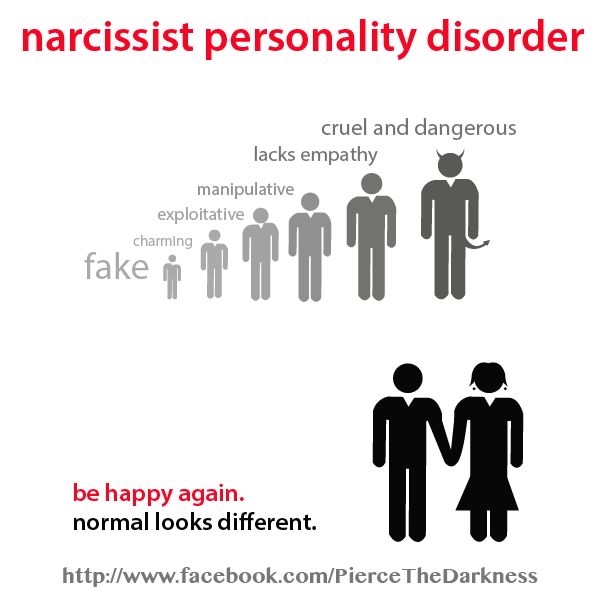
Both rely on other people to manage functions that most of us are able to manage ourselves. People with BPD look to others to manage their moods, while people with NPD want others to prop up their self-esteem.
Both live in alternative realities in which feelings create facts.
Both project their feelings of badness on to other people, who become the target of blame.
Both blame everybody but themselves; neither will admit that they were wrong or made a mistake.
Both can be critical and judgmental, and both have to be right at all times. Neither will take responsibility for their words and actions.
Both carry grudges, see themselves as victims, and expect loved ones to agree.
Both are unwilling to listen to what they don’t want to hear.
Both may become exceedingly jealous over little or nothing.
Both feel a great sense of shame, which they cover over with layers of self-deception.
Both often lie.
Both try to control other people in their environment to feel safe. People with BPD use that control to manage their emotional stability, while people with NPD may use it to prop up their self-esteem.
People with BPD use that control to manage their emotional stability, while people with NPD may use it to prop up their self-esteem.
Both need plenty of attention.
Both are so busy getting their own needs met that they have a little energy left for others.
Both have stunted emotional development, and are impervious to logic when they are triggered.
Both can be emotionally and verbally abusive and so they have unstable or impaired relationships.
Both see things in black-and-white, with no shades of gray.
Randi Kreger is the author of Stop Walking on Eggshells and The Essential Family Guide to Borderline Personality Disorder.
Narcissistic and borderline personality disorder. Narcissistic abuse
I do not agree with all the points, but the article is useful.
Help for people suffering from narcissistic abuse.
Translation of Melanie Tony Evans's book "Processes necessary for recovery from narcissistic abuse" ".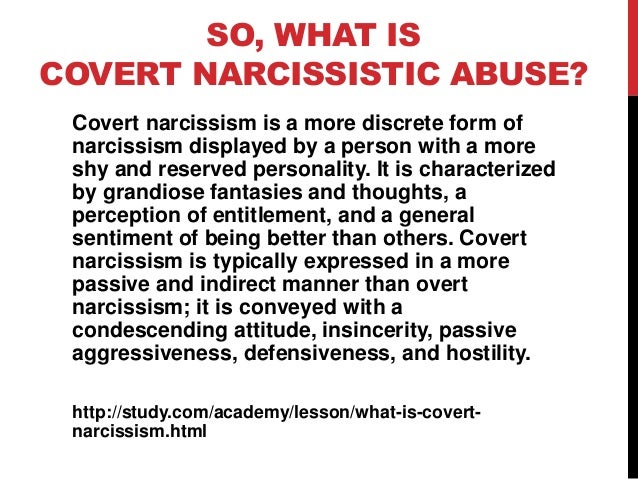 Any comments write in the comments. nine0003 Retrieved from www.melanietoniaevans.com
Any comments write in the comments. nine0003 Retrieved from www.melanietoniaevans.com
Hello, my name is Melanie Tonya Evans and as a result of my personal journey and absolute enjoyment in the privilege of helping victims of narcissistic abuse around the world. I would like to present this post to you. Unfortunately, due to the worldwide epidemic of narcissistic abuse, the information in this e-book is an absolute must-read.
The reason I am so enthusiastic about alleviating your suffering and healing you from narcissistic abuse is because a few years ago I was the victim of an extremely narcissistic love relationship. I spent years in a completely destroyed and powerless state, and the worst thing is that I was very close to ending my life because of the abuse against me. nine0006
Looking back, I realize that I was in a completely different world. I feel full of energy, happy, secure and I love life again. I also have an amazing boyfriend and a career and environment that reflects who I want to be. Narcissism is no longer a reality in my world.
Narcissism is no longer a reality in my world.
And as a result, I am totally passionate about helping you get where I am.
Since I discovered the truth about narcissism and its destructive effect on its victims, I have been fascinated by this phenomenon for a very long time and I am convinced that narcissism is the main cause of victim abuse. nine0006
What is most striking is that people who have been abused by narcissists all say the same thing. I am sure that (if narcissistic abuse applies to you) as you read this book, you will find that the details described are incredibly accurate and eerily similar.
The "answers" about narcissistic abuse were a huge relief for me and they completely "came out from under the veil". The first time I was diagnosed with narcissism was in the middle of heartbreaking breakups and rekindling with my narcissistic ex-partner. I was sitting on the couch in a rented apartment (another "evacuation" in an attempt to fix things from a distance) and the word "narcissist" appeared in my head from literally nowhere. nine0006
nine0006
I went to my computer and started searching for a word. I read the description of narcissism and my mouth dropped open in amazement. Immediately, I suspected the worst - my ex-partner is a narcissist. After several hours of reading, I was convinced that he was a narcissist. The puzzle has been completed.
However, no understatement how many times I have read that there is no "cure" for narcissism. I was determined to find a way. Of course, because love conquers all. Of course, because I can take him to a psychologist or find another way to help him, there was hope. Of course, because I can build an ideal relationship from scratch, I "knew" that it should be so. nine0006
Despite understanding what narcissism is and learning everything that could be found about it, even after seeing a personality disorder specialist who gave me clear hints to run away, I resisted until I was completely defeated.
You see, I was strong, determined, I could always achieve anything in my life if I wanted to. I didn't want to admit defeat under any circumstances.
I didn't want to admit defeat under any circumstances.
Even though I knew a lot about narcissists and the damage they cause, I still didn't realize at the time that my attempts to change and fix him were a great source of fueling narcissism for him (my attention). The more I remained attached to him, the more he fed his narcissism, and my personality became less and less until only a shell remained. nine0006
I thought I was a loving partner and his support, but in reality I offered myself as a "victim". But how could I know and understand what was really happening when my view of what was happening was through the "lens of humanity"?
I was not at a level where I could accept the real understanding and manifestation of narcissism, which meant that he was not interested in solutions, cures, achievements in changing the situation for the better or solving problems. He was not interested in the topics that we discussed, my feelings about unfair moments on his part, lack of his support, manipulation and lies. nine0006
nine0006
He was only interested in feeding attention - it didn't matter if it was good or bad. For an understanding of the tendencies of narcissism versus humanity, you can read my book How and Why to Do 'No Contact' When Narcissistically on my page www.melanietoniaevans.com (this book is part of the recovery program after narcissistic abuse).
Just like many people with whom I communicated, I was caught in the "illusion" that this is "the person I dreamed of all my life", however, everything I thought about in reality turned into the most nightmare. nine0006
However, instead of paying attention to myself, I stubbornly clung to the version of the man that I wanted to see and did not want to understand that he was different. As a result, I was attached to him much longer than I should have been (which is a common manifestation of narcissistic abuse), I suffered a complete psychological and suicidal breakdown. I tried to love and fix the person who was tearing my life and soul apart piece by piece all the time.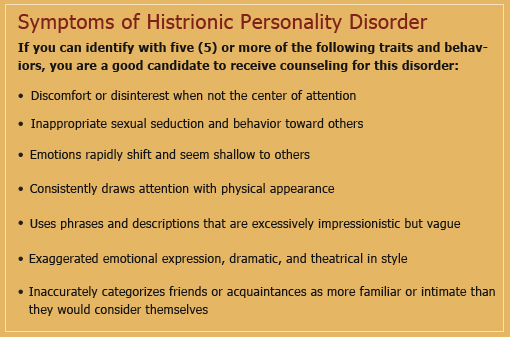
When I "broke down", I was depressed, I developed a fear of open space and a complex post-traumatic syndrome, and, describing the moment when I broke down, I absolutely clearly saw myself "drenched in my own blood." I saw my own image stood before my eyes and I could not get rid of it. I remember my thoughts - "it's clear, that's how they lose their minds." nine0006
I suffered severe psychological, physical, emotional, financial and sexual abuse in my quest to mend relationships, and I kept coming back for more. I believed that I would be the first person on the planet to heal a deep narcissist. I believed that it was my responsibility and that our relationship was not fully disclosed and that I should heal him.
As a result, I had to be treated for a severe psychosis - I was close to trying to kill myself. I was prescribed complete rest and anti-psychotic drugs. Something in me knew that if I went through the usual path of treatment I would never recover and I would never live the life I wanted to.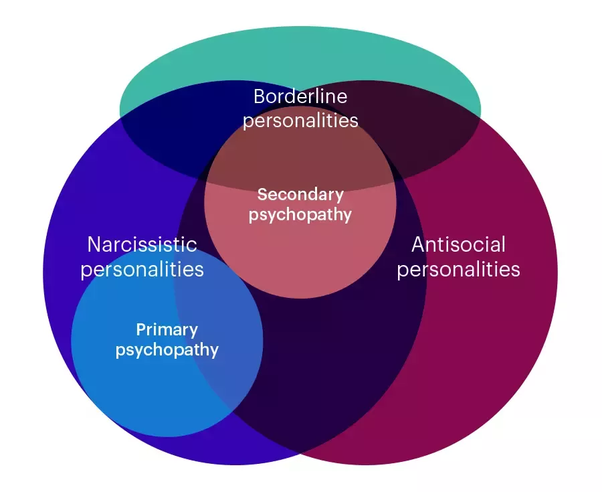 After the Valium injection, the traumatic shock disappeared and I began to behave "normally". My condition was described as stable and allowed to be taken home under observation. I was told to come back the next day and continue the treatment. nine0006
After the Valium injection, the traumatic shock disappeared and I began to behave "normally". My condition was described as stable and allowed to be taken home under observation. I was told to come back the next day and continue the treatment. nine0006
I remember the drive home and the thoughts running through my head. I did not know what to do except to go the way of treating injections with drugs. In addition to the fear of a recurrence of psychosis, my adrenaline-releasing system was overactive and as a result was a serious threat to my health. I needed to stabilize my health and emotions, but I was afraid to turn into a "zombie". I felt hopeless and did not know how to get out of this state.
When I got home, I collapsed on the bathroom rug, raised my hands in the air, and, through streams of tears, prayed to the universe "I can't do this alone
The information I share with you in this book is rather my personal history and the procedures I went through to save and restore myself to become competent to create real life, love, success and enjoyment of life.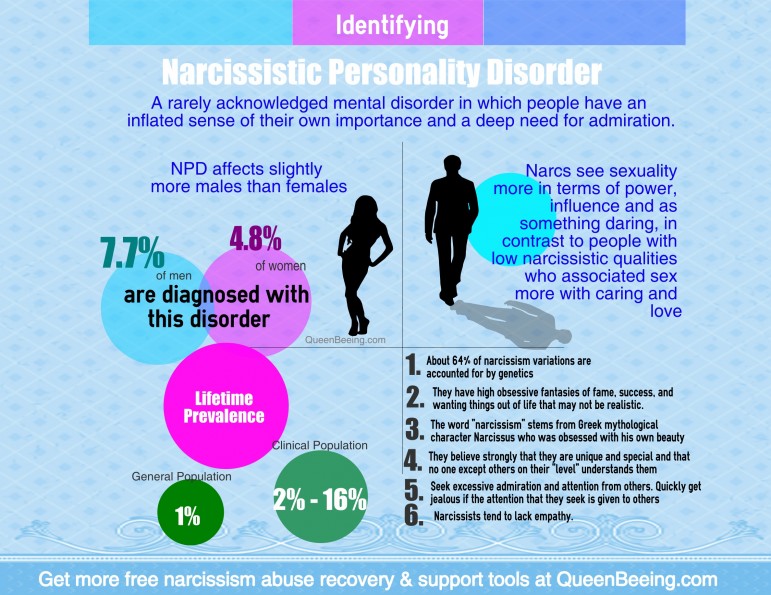 And one of my biggest desires is to inspire you to do the same.
And one of my biggest desires is to inspire you to do the same.
Self-improvement
Self-improvement is needed by women in men who suffer from narcissistic abuse or the consequences of narcissistic/abusive relationships. Although my book is specifically for people who have suffered from narcissistic love relationships, the information and processes are also suitable for any person who suffers from a narcissistic relationship with a parent, relative, or other important person in their life. nine0006
Work on yourself is also very necessary if, as a result of a violent relationship, you are still alone and feel empty and disappointed and are afraid to create new relationships. It is important to deal with your past before you try to move forward. Many of us take a more difficult path, otherwise we are very much at risk of experiencing the same pain again.
You may even have formed a relationship with a healthy partner, but the demons of the past create fears and undermine the relationship.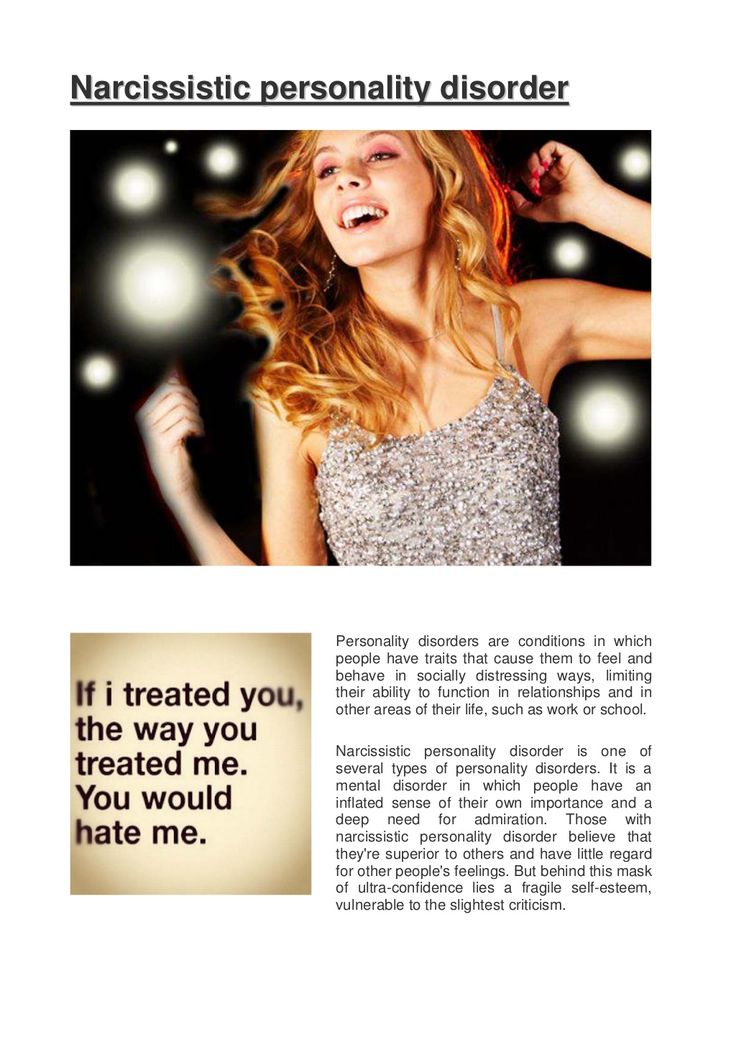 You run the risk of losing the "good" if your relationship is not built with an eye to those things that manifest from your past into your present circumstances
You run the risk of losing the "good" if your relationship is not built with an eye to those things that manifest from your past into your present circumstances
I believe that when you read about the processes needed to recover from narcissistic abuse, you yourself will begin to understand what you need to do to get your life back - and you will become much more competent in understanding these processes than you could imagine.
Law of attraction
This is true of all of us - and especially those who are "broken" - we are waiting for someone to "give us himself" - we are very vulnerable because of this. Why? Because we cannot control anyone but ourselves. We cannot force someone to behave in a certain way in order for those people to give us the life we want. Counting on the fact that these people will make us happy, we give up our own capabilities and strengths and become powerless. nine0006
I know it's like a sudden awakening. All the same, our normal human views say that they should! But it's not something we see every time, no matter how much they have to, no matter how hard we try to make it happen, they either don't want to or can't, it won't happen.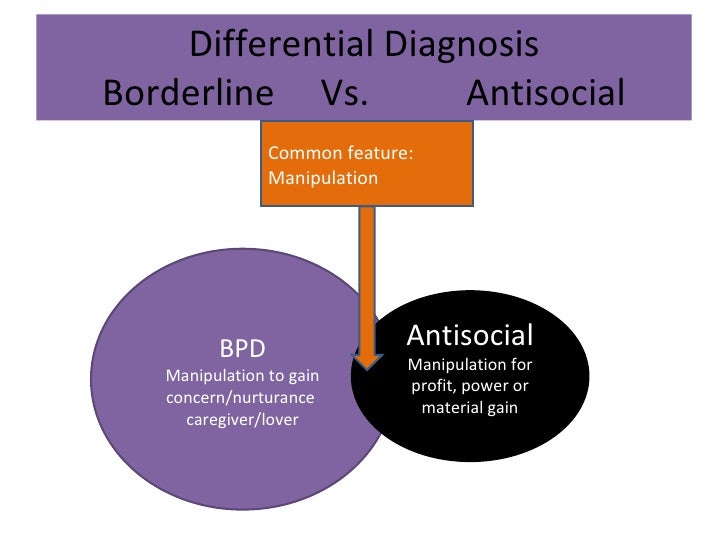
Why do we stubbornly try to do this? Why don't we understand, as in the case of a machine or a computer, it doesn't work, it hurts me. It doesn't work out with this person - well, it's time to find someone with whom it will work out...
We may ask that we do not evaluate relationships in this way, because logically we can take another computer and get there in a different way than by car, but when we understand that the relationship has inevitably run out of steam, we cannot just take a change of partner the next day . And even if we do this, there is no guarantee that it will work and solve our relationship problems.
Perhaps the lesson is that we should not be stubbornly attached to existing relationships because it is not easy to replace them with others. Maybe our relationship is not some external addition to our life. Maybe they are a continuation of a relationship with themselves. Maybe the right solution is to create ourselves
Unfortunately the "problem" cannot be solved by finding someone from outside to give "what I need in life".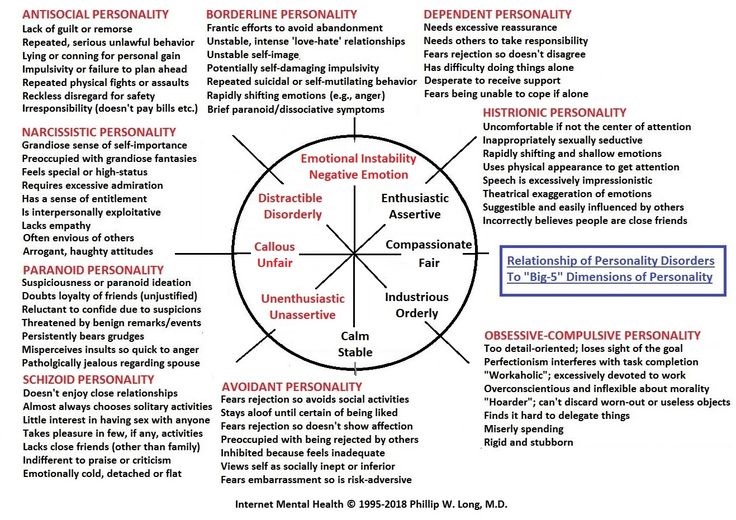 Therefore, this means that the solution to the "problem" must appear within us.
Therefore, this means that the solution to the "problem" must appear within us.
The Law of Attraction is very precise and incredibly absolute. And it says: no one can give us what we cannot give ourselves.
Based on the law of attraction and quantum physics, the indisputable proof is ‘as within, so without’. Therefore, I deeply believe that you do not yet know that you deserve to be "full", happy and strong - and no one else can give you these values. nine0006
The funny thing is that when you start creating yourself with all your heart, you naturally start to attract "like". Then you begin to follow this path and achieve real results. Nobody can give you "themselves", they can only add to "you". When you create yourself, "adding to you" will become an attachment to you.
"Creating yourself" can seem like really hard work. But the truth is that the much harder work is NOT to create yourself... I have learned this deeply from my own experience. I also realized that having created myself and embarked on the life path of "full self" love is literally "easy" and "natural".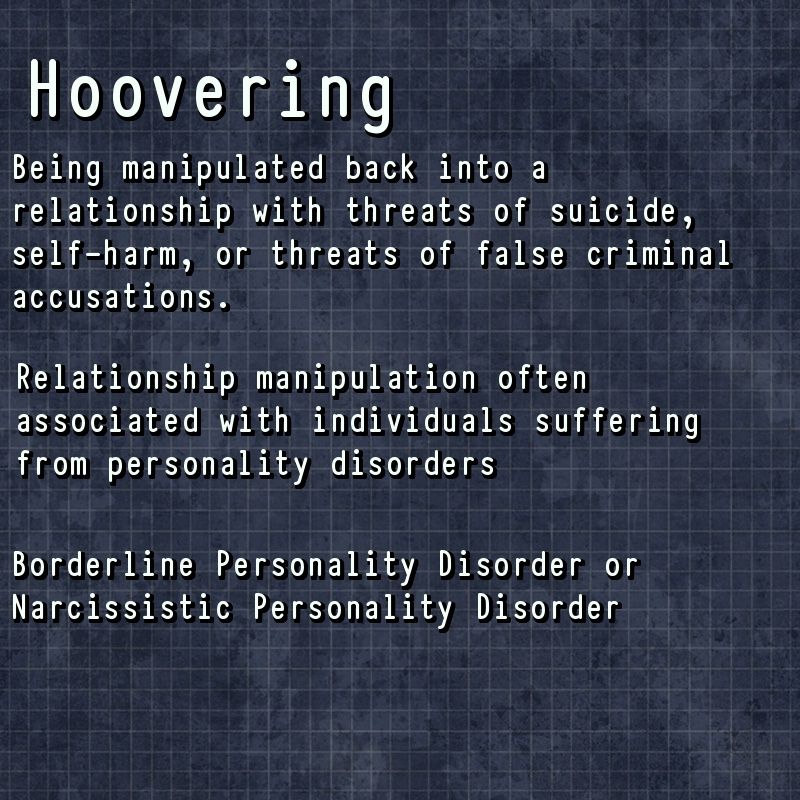 Instead of being an endless struggle, it becomes light and gives strength and freedom to create, instead of constantly exposing past wounds. nine0006
Instead of being an endless struggle, it becomes light and gives strength and freedom to create, instead of constantly exposing past wounds. nine0006
As you read, I will try to explain this to you as best as I can so that it can become your life.
Part of the healing process. Education
The first and necessary part of the process of healing from narcissistic abuse is education about what narcissism is, the tendencies of the narcissist, and YOUR tendencies in dealing with the narcissist. Your understanding of the facts of narcissism is essential.
Understanding narcissism.
Narcissism is a serious personality disorder in which an individual seeks to fuel narcissism (attention, energy, other values) at the expense of others. nine0006
There are two types of narcissism:
- Healthy narcissism in which the individual tries to make sure that his needs are met, trying to win in different situations, but without intentionally harming others. This is the point of view of the "majority", all beings deserve good things, "I can achieve and find happiness and I am happy that other people in my life get good things."
This is the point of view of the "majority", all beings deserve good things, "I can achieve and find happiness and I am happy that other people in my life get good things."
Determine if you have a love addiction and find out what steps are needed to break out of it and break the circles of pain. nine0006
Introduction
Society pays attention to chemical and gambling addictions. Dependence on love relationships - no. Addictions are based on emotions. Is there anything more emotionally all-consuming than a love relationship?
It is well known that serious addictions can kill a person or ruin a life. Dependence on love relationships can lead to death and destruction, tearing apart love for oneself, life and connection with everything in our world. (Quote from the back cover of Breaking the Chains of Painful Love.)
What does "addiction" mean?
Addiction is a habit of something necessary for a normal existence. If you remove the object of dependence, then the person will experience the shock of rejection (withdrawal syndrome).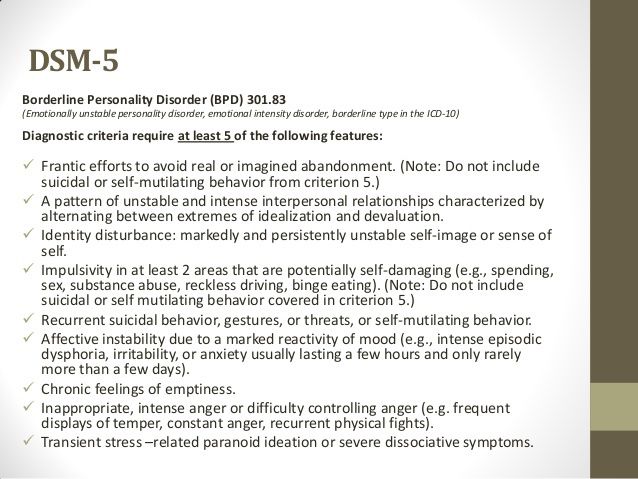 Addiction, in its advanced stages, creates a manic level of constant desire to return to the source of the addiction despite the devastating consequences for the mental, emotional, physical or financial condition.
Addiction, in its advanced stages, creates a manic level of constant desire to return to the source of the addiction despite the devastating consequences for the mental, emotional, physical or financial condition.
Any addiction is serious. nine0006
Addiction to love relationships is deadly serious.
Women are more genetically predisposed to fall into a state of love addiction. They have a tendency to uplift their partners more quickly and see them as a source of happiness. Such women did not work for their personality and created their own sense and understanding of personal support and strength.
Also, women are more likely to fall into the hands of a narcissistic partner and stay with him allowing self-understanding and sense of self to be destroyed, leading to a serious state of dependence on love relationships - often in addition to the consequences of severe psychological abuse. nine0006
It is unlikely that addiction to love relationships will last very long, as it will not be allowed by at least one of the emotionally healthy partners who are healthy enough to maintain a successful relationship.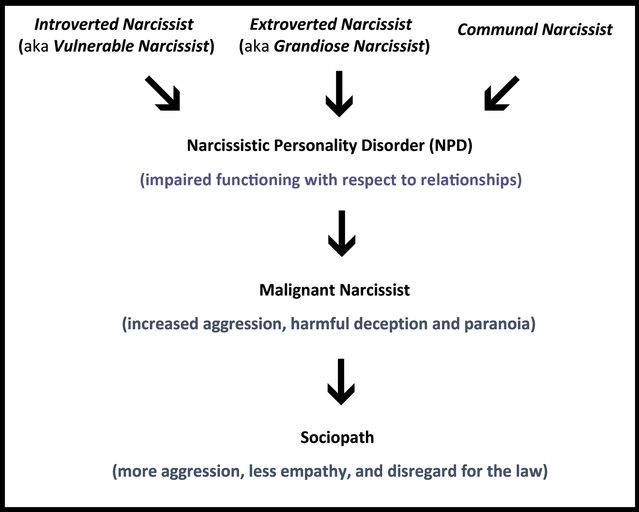 Typically, the partners involved have attracted each other as a result of unresolved emotional fears.
Typically, the partners involved have attracted each other as a result of unresolved emotional fears.
Please note that although these characteristics are characteristic of a dependent woman, they are also characteristic of men.
How to determine if you are suffering from a love addiction:
- Your days are based on "what he does, says or thinks"
- You have lost interest in friends and personal goals
- You plan your life to fit his life
- You accept what he wants even if you disagree
- You start to become one and get involved in things you never thought you would be involved in
- You often feel anxious, depressed and confused
- Your life in general can be described as suffering
- You crave his attention, but you are all time lacks that attention, even if you feel anxious, frustrated, or abused in his company
- You are horrified if he hangs up or leaves
- If he shows a loss of interest in you - you panic
- No matter how he treats you, you cannot leave
- You admit mistakes or give in even if you are not comfortable with this maintain a normal relationship
- You feel a strong emotional and mental decline if the relationship breaks off
- You cannot stop contact with him
- Your behavior is out of your control
Obsessed love is unresolved emotional problems
Love addiction is not healthy love.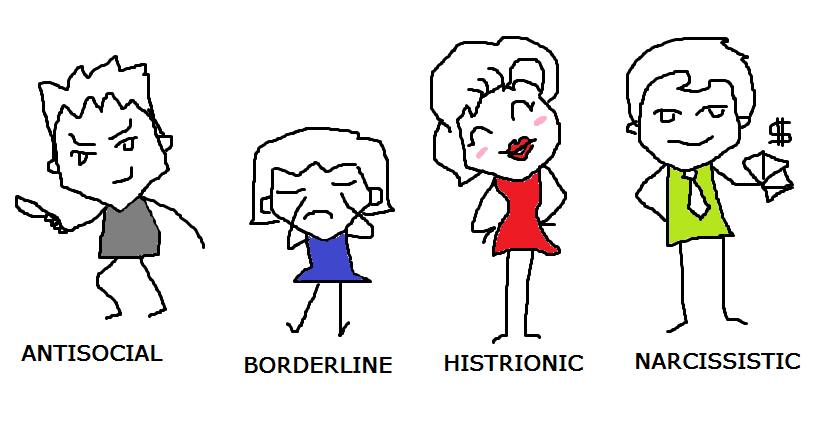 It's a craze. It misleads a lot of people because they feel it very strongly and think "This must be love!" No, this is not love - this is an onslaught of chemical peptides (hormones) that are driven into your body and a deep subconscious behavioral model of self-flagellation that is looking for a way out of your soul. It is your body's way of bringing past traumas out again in order to become aware of them and heal them.
It's a craze. It misleads a lot of people because they feel it very strongly and think "This must be love!" No, this is not love - this is an onslaught of chemical peptides (hormones) that are driven into your body and a deep subconscious behavioral model of self-flagellation that is looking for a way out of your soul. It is your body's way of bringing past traumas out again in order to become aware of them and heal them.
People who are addicted to love often have unresolved childhood problems that create a strong attraction in unhealthy relationships. Typically (subconsciously) the person tries to resolve unresolved childhood emotional issues by pulling the person causing the trauma (such as abandonment, mistrust, abuse) to bring them back to the surface from childhood. nine0006
The big picture is this is a great system to heal what hasn't been healed yet - but if we don't become aware of this system old wounds are reopened and the pain is terrible with no end in sight.
Cure from obsessed love
Cure is vital.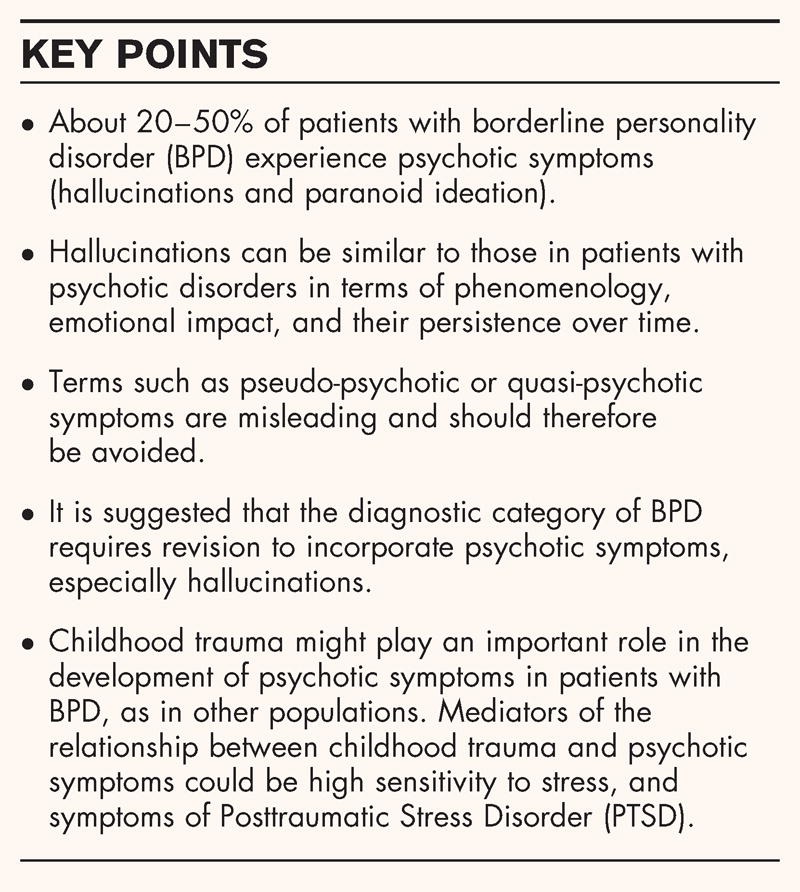 Love addiction leads to complete stupor and even death if it is not stopped - imprisonment, murder, suicide or death from an incurable disease, a fatal incident.
Love addiction leads to complete stupor and even death if it is not stopped - imprisonment, murder, suicide or death from an incurable disease, a fatal incident.
Recovery steps:
- Recognizing that you are addicted and in need of help
- Pull yourself out of the source of addiction and make structured plans to get yourself back
These plans could be:
- Recovery system
- Counseling and group support created to overcome love addiction
- Reading the right books
Goal in work:
- Restoring self-respect
- Developing your strength, interests and personal goals
- Finding and treating the emotional problems that got you into painful, abusive, and dependent relationships
- Developing a healthy belief system, a healthy understanding of personal boundaries, and healthy self-love and respect to eliminate the need to attract or maintain painful, abusive, and dependent relationships.
If you are broken as a result of love addiction, the need to break free and take the first steps can be terrifying.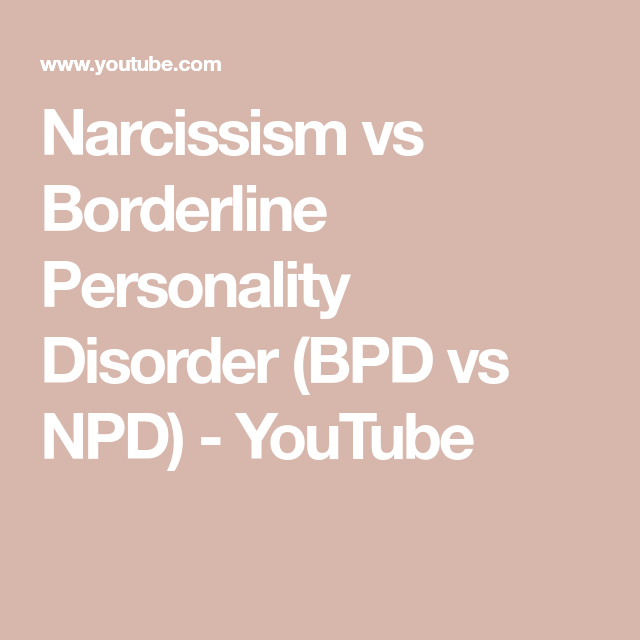 This is the first thing to do in order to heal anxiety, depression from addiction and work towards creating a wonderful life and wonderful relationships. nine0006
This is the first thing to do in order to heal anxiety, depression from addiction and work towards creating a wonderful life and wonderful relationships. nine0006
Please know there is a way out. Understanding dependency as well as the recovery process is essential.
Source
http://narcissistic-abuse-in-russian.blogspot.com/2012_09_01_archive.html?m=1
Psychopaths or victims: who are the "border guards"?
Borderline personality disorder (BPD) has recently been quite heatedly discussed in the media and social networks, but expert opinions about what it really is are often diametrically opposed.
According to some experts, BPD is a relatively new and rather complex phenomenon in psychopathology, according to others, we are talking about the good old and well-studied psychopaths described in the book , systematics” back in 1933 by psychiatrist P. B. Gannushkin. One way or another, according to experts, there are quite a lot of "border guards" around, and therefore it is worth taking a closer look at them.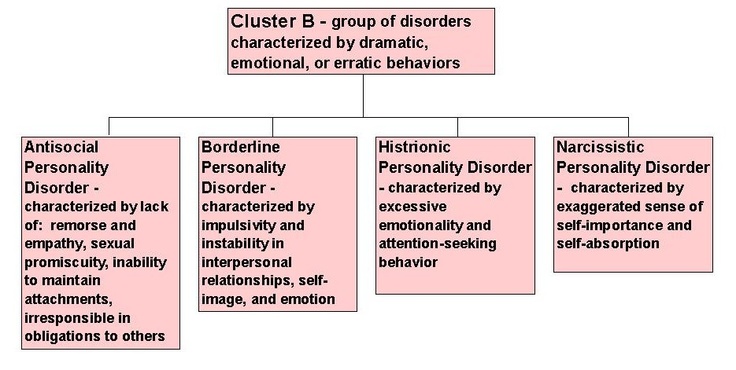 nine0006
nine0006
"Dangerous but sane"
According to ICD-10 (International Classification of Diseases), this condition is a subtype of emotionally unstable personality disorder, which is divided into two types: impulsive ("impulsive personality disorder", formerly known as explosive psychopathy) and borderline (“borderline personality disorder”). The first type is characterized by emotional imbalance, lack of restraint, impulsiveness, low self-control, aggressiveness. The second, in addition to all of the above, is characterized by high anxiety and a strong level of desocialization. People with BPD often lead antisocial and risky lifestyles, feel empty, and abuse psychoactive substances. nine0006
P psychotherapist, member of the Russian Academy of Medical and Technical Sciences Alexander Tesler explains: this condition was renamed from psychopathy to a personality disorder purely out of political correctness. According to one version, this condition is congenital, according to another, it is acquired.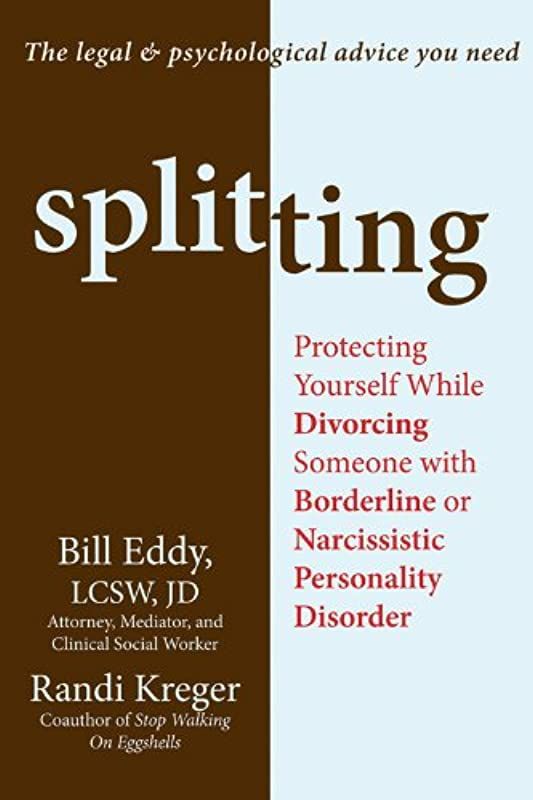 As the MIR 24 expert stated, psychopathic traits can either be aggravated by upbringing or compensated, but psychopaths are still born.
As the MIR 24 expert stated, psychopathic traits can either be aggravated by upbringing or compensated, but psychopaths are still born.
However, if earlier psychopathy was indeed explained mainly by bad heredity or birth trauma, today the versions have varied and range from genetic predisposition to experienced psychotrauma, including mental, physical and sexual abuse in childhood. nine0006
In fairness, it should be noted that in general human nature is distinguished by an enviable variety of various personality disorders that are not a disease in the full sense of the word. In ICD-10, their spectrum is listed in section F60-F68. This is antisocial personality disorder, and hysterical, and anancaste, and anxiety, and many others. There is dependent personality disorder and permanent change after experiencing a catastrophe. Separate points are disorders of habits and inclinations (for example, a pathological attraction to gambling - gambling addiction), to theft (kleptomania), etc.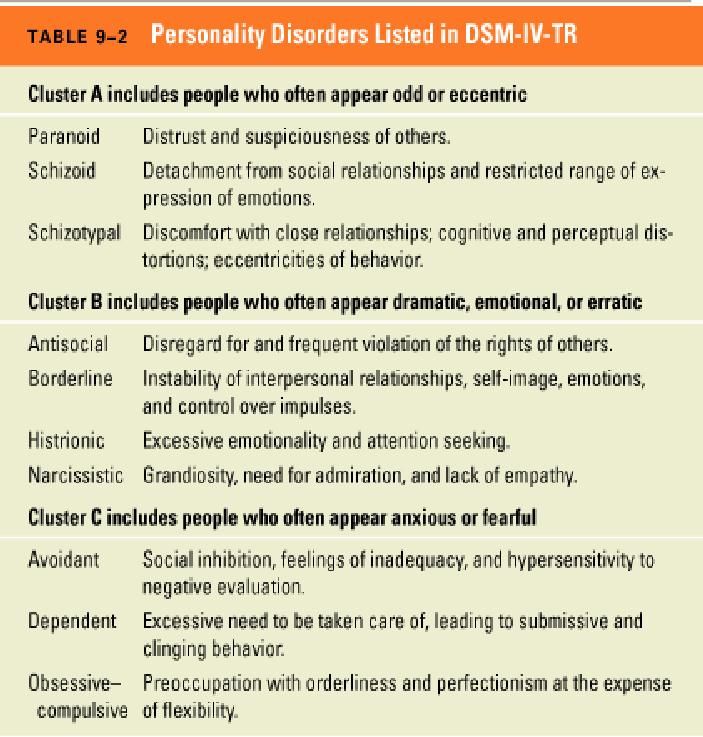 Gender identity disorders are also listed there - transsexualism, dual role transvestism, gender identity disorder in childhood, sexual preference disorders (fetishism, exhibitionism, voyeurism, etc.). nine0006
Gender identity disorders are also listed there - transsexualism, dual role transvestism, gender identity disorder in childhood, sexual preference disorders (fetishism, exhibitionism, voyeurism, etc.). nine0006
Usually, personality disorders are not strictly described paranoid, schizoid, asthenic conditions, but a kind of mosaic. There is even the term "mosaic psychopathy" (mosaic personality disorder). These properties, which in a calm state are compensated by some kind of brakes, are borderline, but stress can unsettle them, says Tesler. Decompensation - the removal of inhibitory mechanisms - exacerbates all these specific features, and then the line is left behind, and the person turns into a psychopath. nine0006
“Everyone in one way or another has both traits – hysterical, asocial, and anxious. We are all mosaic, so pure psychopathy is difficult to identify. It's just that there are prevailing character traits, and there are secondary ones. But during the period of exacerbation, a person does not fully interact with the outside world, society, law, himself, can become aggressive or immerse himself in himself, interrupt contacts with society.
In forensic psychiatric practice, people with personality disorders, if they were not in a state of passion, are recognized as sane, i.e. responsible for their actions,” explains the doctor. nine0006
At the same time, other researchers believe that for psychopaths, "border guards" are too well adapted to reality. However, they certainly have serious problems. Psychoanalyst Adolf Stern, who first used the term "borderline" in 1938, noted that this condition may include narcissism (simultaneous idealization and humiliation of significant persons), impotence in crisis situations, a heightened reaction to criticism, melancholy or infantile personality type, masochism, often accompanied by deep depression, inability to endure severe stress. nine0006
Other researchers have observed "borderguards" chronic feeling of inner emptiness, inertness of affect (stability, sticking of emotions), inability to endure monotony and constancy, a tendency to break traditional social rules, being late, difficulty in establishing emotional contacts, outbursts of rage, irresponsibility, excitability, parasitism, bouts of depression, anger as the predominant or only type of affect, emotional vulnerability, a tendency to impose unrealistically high standards and expectations on oneself.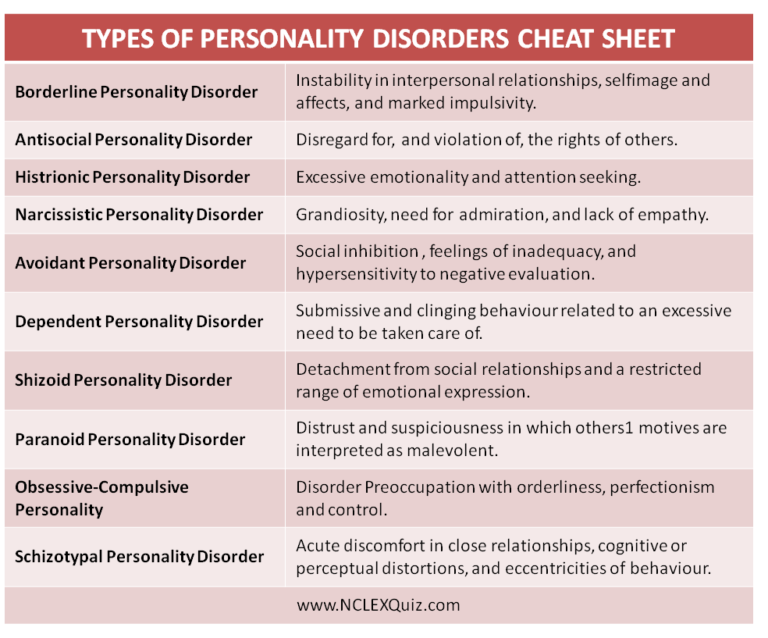 nine0006
nine0006
Another problem of the “borderguard” is a disorder of self-perception, difficulties in understanding oneself and the boundaries of internal and external reality. “Individuals with BPD often claim that they do not feel their “I” at all, complain of a feeling of emptiness and do not know who they are,” writes psychologist Ekaterina Tarasova.
The psychoanalyst Otto Kernberg pointed out that the borderline personality does not feel continuous. A person does not clearly feel who he is, he can evaluate himself in completely different ways in different situations, and because of this fuzzy “I”, he is forced to defend himself, explains psychiatrist Natalia Stilson. “I” in the past, present and future of the “border guards” are not connected, therefore, in a fit of anger, they can completely lose the feeling of love for someone - the connection with past positive experiences is lost. And a fit of anger in a “border guard” can provoke even the most insignificant episode: “I didn’t give you candy - it’s bad.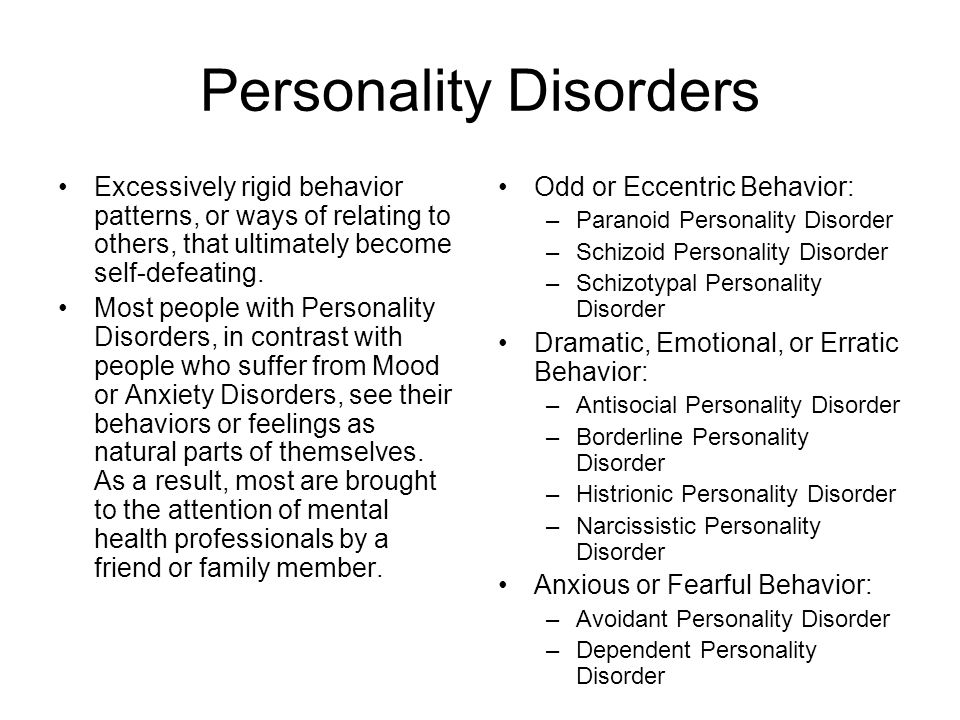 ” nine0006
” nine0006
BPD is sometimes associated with Bipolar Affective Personality Disorder (BAD), which involves fluctuations from depression to hypomania. BAD used to be called manic-depressive psychosis. However, most researchers argue that “border guards” are another story.
Idealization and devaluation
As clinical observations show, since “borderguards” are poorly aware of themselves, they like to unconsciously “mirror” a partner, assimilating his traits, interests, views and parts of personality. But then comes disappointment in the "borrowed", and, as a result, aggression directed at the donor of these parts. nine0006
At first, a highly functioning “border guard” can make a good impression on others, until he becomes disillusioned with them and falls into a phase of aggressive rejection of alien “parts”. “The mental life of BPD is a stormy sea with its own laws. So don't give yourself up to the waves. Not even all good swimmers can cope here,” Natalya Stilson warns potential partners of the “border guards”.
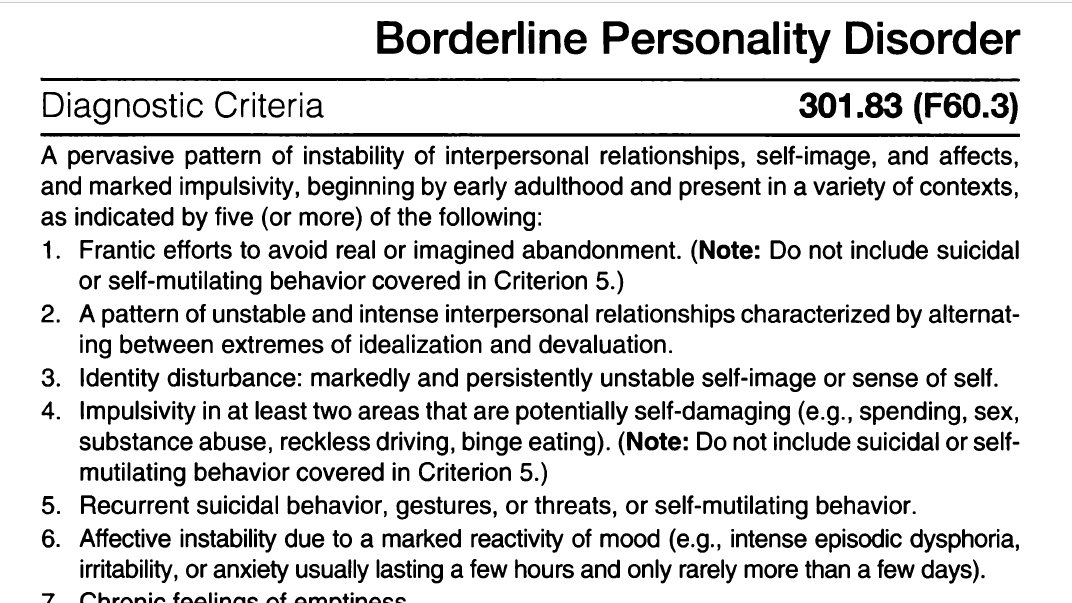
In his relations with others, the "border guard" goes through several phases: idealization, disappointment and depreciation. Therefore, partners he, as a rule, come across appropriate. nine0006
As Stilson points out, the typical partner of the "border guard" is the narcissist. The latter needs a "reflector" of his own false personality, while the former wants to appropriate other people's good qualities and parts. “The narcissist exposes his vivid false personality, which the border guard reflects and appropriates,” writes the psychiatrist. "So which one of them is in trouble?" Narcissus. But he really got stuck, because he could not resist the border guard. At a certain point, all the achievements of the narcissist are turned upside down, and this actually dunks the narcissist in the face in the dirt. It's hard for a narcissist to survive." nine0004
The border guard uses the latter's perfectionism against the narcissist - explains that the narcissist is not up to the ideal and must try harder.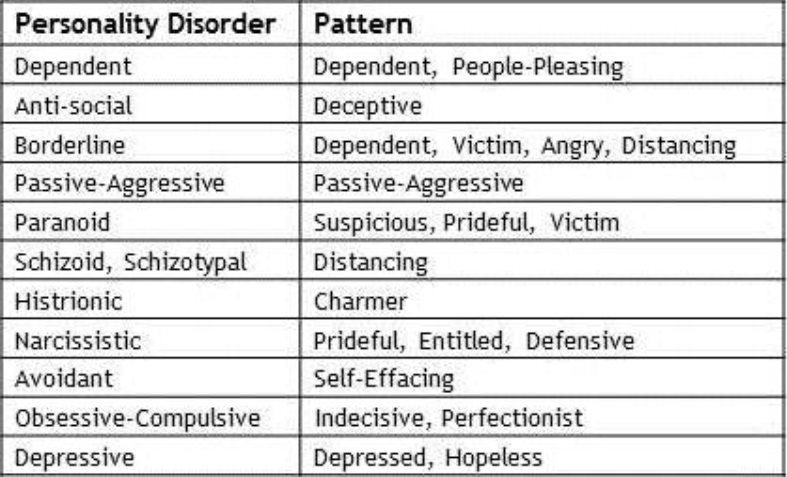 Further, having devalued the narcissist and destroyed his self-esteem, the border guard feels deeply satisfied, while the narcissist is forced to fight to the last to regain his partner's former admiration. But since the “border guard” sees everything in black and white (a partner can be either perfect or insignificant), a partner who once lost his attractiveness for him is unlikely to be able to return everything back. At the same time, as noted by other researchers, in terms of the level of integration, the border guards themselves are the closest to narcissists. nine0006
Further, having devalued the narcissist and destroyed his self-esteem, the border guard feels deeply satisfied, while the narcissist is forced to fight to the last to regain his partner's former admiration. But since the “border guard” sees everything in black and white (a partner can be either perfect or insignificant), a partner who once lost his attractiveness for him is unlikely to be able to return everything back. At the same time, as noted by other researchers, in terms of the level of integration, the border guards themselves are the closest to narcissists. nine0006
In turn, practical psychologist Elena Burkova believes that “border guards” often expect their partner to play the role of an unconditionally loving parent. However, since their relationship with their own parents was not easy (the child never felt safe with them and did not allow himself to be himself out of fear of misunderstanding and condemnation), the “border guard” develops an ambivalent attitude towards his loved one - love-hate. Therefore, expecting unconditional love from the partner, which was not received from the mother, the “border guard” himself implements the strategy of avoidance and is not capable of equal love. nine0006
Therefore, expecting unconditional love from the partner, which was not received from the mother, the “border guard” himself implements the strategy of avoidance and is not capable of equal love. nine0006
Childhood trauma
Mothers with BPD are a separate problem. Such women, as a rule, give birth out of fear of loneliness, for the sake of "a glass of water in old age" - i.e. guaranteed love. The attitude towards the child's father can suddenly and for no reason change from violent passion to complete denial and hatred (subsequently, this attitude is transferred to the child, breaking his self-esteem). And, although such an attitude towards men on the part of ex-wives is not uncommon, the main feature of the “border guard” is idealization with subsequent depreciation of the partner. nine0006
Such mothers are extremely difficult to please, because their mood changes several times a day, and the destroyed self-esteem of their children is not the only negative consequence of such relationships.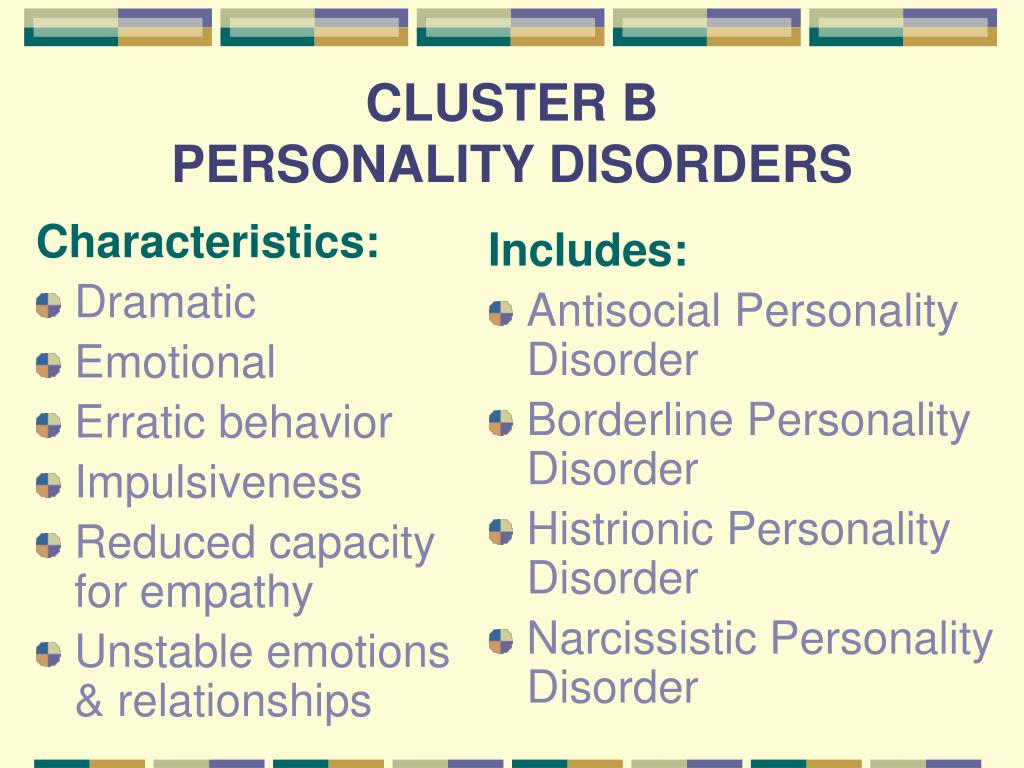 “Such a child was punished for being a child. And in order to (psychologically) survive, he had to sacrifice his identity, his true self, in order to maintain attachment. Therefore, now love and intimacy are forever associated with the risk of losing oneself through absorption or abandonment,” writes psychologist, gestalt therapist Tatyana Martynenko. At the same time, the "border guards", according to her, perfectly test reality, are super-sensitive to the field, accurately read the emotions and moods of others. nine0006
“Such a child was punished for being a child. And in order to (psychologically) survive, he had to sacrifice his identity, his true self, in order to maintain attachment. Therefore, now love and intimacy are forever associated with the risk of losing oneself through absorption or abandonment,” writes psychologist, gestalt therapist Tatyana Martynenko. At the same time, the "border guards", according to her, perfectly test reality, are super-sensitive to the field, accurately read the emotions and moods of others. nine0006
Ekaterina Tarasova, for her part, notes: “border guards” are very sensitive to the world around them and are able to subtly feel and experience strong emotions. At the same time, the researchers note, since in the view of such a child the world was unsafe, and his interests and personality were not taken into account, this, as it were, gave him permission to "crack" the boundaries of other people.
And psychologist, Gestalt therapist Gennady Maleichuk explains the rejection by the "borderguards" of parts of their own "I" by the fact that in childhood they did not have an understanding, supportive adult, "containing chaotic, uncontrollable emotionality, which led to a pathological splitting of experience and in as a result, to the non-inclusion in the image of the "I" of some unacceptable, unworthy from the point of view of the parents of feelings, inclinations and qualities of the "I".